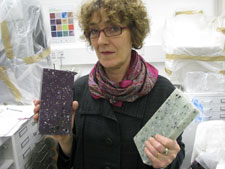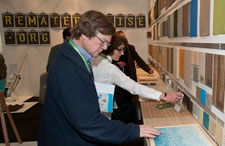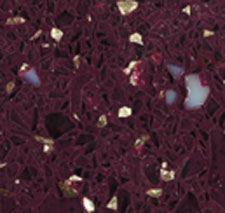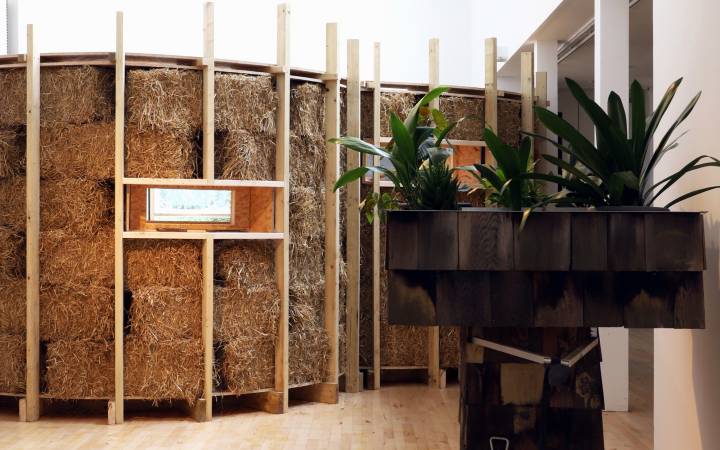A world of sustainable materials at the click of a mouse
Posted Thursday 22 March 2012
 How can architects, designers and the building industry find out about new, sustainable construction materials? That's the question that Jakki Dehn, a reader at London's Kingston University, tried to address when she started work cataloguing more than 1,200 sustainable materials for use in the construction industry. The result is a materials library, Rematerialise, which is now available online at rematerialise.org.
How can architects, designers and the building industry find out about new, sustainable construction materials? That's the question that Jakki Dehn, a reader at London's Kingston University, tried to address when she started work cataloguing more than 1,200 sustainable materials for use in the construction industry. The result is a materials library, Rematerialise, which is now available online at rematerialise.org.
Ms Dehn has been developing Rematerialise at Kingston University's Faculty of Art, Design and Architecture for 18 years but it's only now that the bulk of the library can be viewed online.
"Until now we've only had a small site with about 80 products on it," she explained. "Now there are more than 1,000 materials listed, so industry professionals, teachers, researchers, students and anyone with a need to know more about ecologically-responsible design can find out about those that use fewer non-renewable resources or can be re-grown."
 Ms Dehn began her research into sustainable materials in 1994 and received Arts and Humanities Research Council funding in 2003. As word about the resource spread, new products started arriving on an almost daily basis. Rematerialise now houses materials from 15 different countries.
Ms Dehn began her research into sustainable materials in 1994 and received Arts and Humanities Research Council funding in 2003. As word about the resource spread, new products started arriving on an almost daily basis. Rematerialise now houses materials from 15 different countries.
"We recently received a new type of flooring material called zelfo," she said. "The main ingredients are hemp, straw, tropical grasses and sugar cane." Another eye-catching material is resilica, which is used in kitchen worktops as an alternative to granite or formica. It is made mainly of glass recycled from car windscreens and building sites.
Once planners have done initial research online they can make an appointment to view the materials themselves at Kingston University's Knights Park campus.
 Representatives from Marks and Spencer were so impressed by the library's emphasis on sustainability they invited a group of second year product and furniture design students to help furnish their new headquarters. Kingston's design students have also worked with IKEA, The Prison Enterprise Services and Transport for London.
Representatives from Marks and Spencer were so impressed by the library's emphasis on sustainability they invited a group of second year product and furniture design students to help furnish their new headquarters. Kingston's design students have also worked with IKEA, The Prison Enterprise Services and Transport for London.
Contact us
General enquiries:
Journalists only:
- Communications team
Tel: +44 (0)20 8417 3034
Email us



